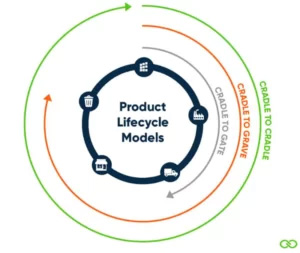
What is Greenwashing ?
In today’s world, it can be difficult to differentiate between genuine efforts towards sustainability and companies just trying to ‘greenwash’ their public image.
Greenwashing is simply the process of conveying a false impression or providing misleading information about how a company’s products are more environmentally
sound. It is a marketing practice that creates the illusion of environmental responsibility. The term “greenwashing” was coined in 1986 by environmentalist Jay
Westerveld to criticize the “save the towel” movement in hotels, which he saw as hypocritical due to the vast amount of waste throughout the rest of the hotel, where
there were no visible signs of efforts to become more sustainable.”
Big Brands and Carbon Scams
Many well-known brands have garnered attention and been accused of greenwashing in recent times. Volkswagen is an example of one brand called out recently for
greenwashing.
Examples of Greenwashing
Volkswagen is an example of one of the biggest greenwashing exercises in recent times. In 2015, the German car giants admitted to cheating emissions tests by equipping
various vehicles with a “defect” device. The fitted software could detect when a vehicle was undergoing an emissions test and adjust its performance to cut emissions.
This was happening while the corporation was promoting the low-emissions and eco-friendly attributes of its automobiles in marketing campaigns to the general public.
These engines were releasing up to 40 times the permissible limit for nitrogen oxide emissions. There have been many other examples of Greenwashing from high-profile
companies and as a result, consumer skepticism has increased. This skepticism impacts brands that are genuinely implementing environmentally friendly practices and
actions taken by public authorities and figures.
Greenwashing has two consequences:
- It misleads consumers;
- It does not bring about any improvement regarding the reduction of greenhouse gases and climate change.
EU set to demand thorough compliance
The EU is cracking down on Greenwashing and companies will soon be required to verify and substantiate their environmental claims.The aim is to establish minimum
requirements for the substantiation and communication of environmental claims, ensuring that they are credible, transparent, and trustworthy. The proposed directive
is part of the European Green Deal, which aims to make Europe climate-neutral by 2050.
The EU’s new restrictions are intended to discourage companies from making unfounded environmental claims about their products, with firms warned that they might
soon face penalties of at least 4% of their annual revenue for “greenwashing.” Environmental and social governance (ESG) reporting is currently mandatory, for larger
companies, but the new Corporate Sustainability Reporting Directive which comes into effect this year will soon require smaller companies to report their ESG performance.
The British government and other anti-global-warming organizations are mobilizing to raise consumer awareness of greenwashing and push businesses to take a socially
responsible approach to sustainable development.
NGOs are scrutinizing what firms are doing, and customers are more aware than ever of a company’s environmental activities. Until now companies have not had to back
up any claims they have made regarding their sustainability activities and many companies have used sustainability as a marketing ploy rather than achieving any measurable
results. Companies will soon be forced to back up their green claims with hard evidence under the EU Greenwashing Directive.
Consumer Mistrust
Many consumers mistrust environmental claims made by companies but are not confident of spotting false claims. Companies must now build trust through commitment
and verification. Businesses are therefore actively looking for green solutions that can also improve their marketability and, ultimately, their bottom line.
A recent consumer study carried out by PWC revealed that more than three-fourths (78%) are willing to pay higher for a product that is produced/sourced locally,
made from recycled, sustainable or eco-friendly materials (77%), or produced by a company with a reputation for ethical practices (75%).


5 Tips to Avoid Greenwashing
- Look for third-party certifications: Third-party certifications, such as the Forest Stewardship Council (FSC) or Energy Star, can assure that a product or service meets
specific environmental standards. However, it’s important to ensure that the certification is legitimate and not just a made-up label.
2. Do your research: Take the time to research the company and its products or services before making a purchase. Look for information on the company’s environmental
policies and practices, as well as any environmental awards or recognitions they may have received.
3. Beware of vague or misleading claims: Be wary of claims such as “all-natural” or “eco-friendly” that are not backed up by specific information or certifications. These types
of claims are often used in greenwashing and can be misleading.
4. Consider the entire lifecycle of the product: A product may be marketed as environmentally friendly, but if it has a short lifespan and needs to be replaced frequently,
it may not be as sustainable as it seems. Consider the entire lifecycle of the product, from production to disposal, before making a purchase.
5. Look for transparency: Companies that are truly committed to sustainability will be transparent about their environmental practices and policies. Look for companies
that provide detailed information about their environmental impact and are willing to answer questions about their sustainability efforts.
Avoiding greenwashing requires careful consideration and research before making a purchase. Look for third-party certifications, do your research, beware of vague or
misleading claims, consider the entire lifecycle of the product, and look for transparency in a company’s environmental practices.
Conclusion
In conclusion, greenwashing can be a very damaging marketing and communication technique. It is impactful on our entire society. Companies need to play their part
and embed sustainability into everything they do. Sustainability should inform every aspect of the business and a green culture must be created. Leaving our sustainability
strategy in the hands of the marketing department is essentially just greenwashing.





